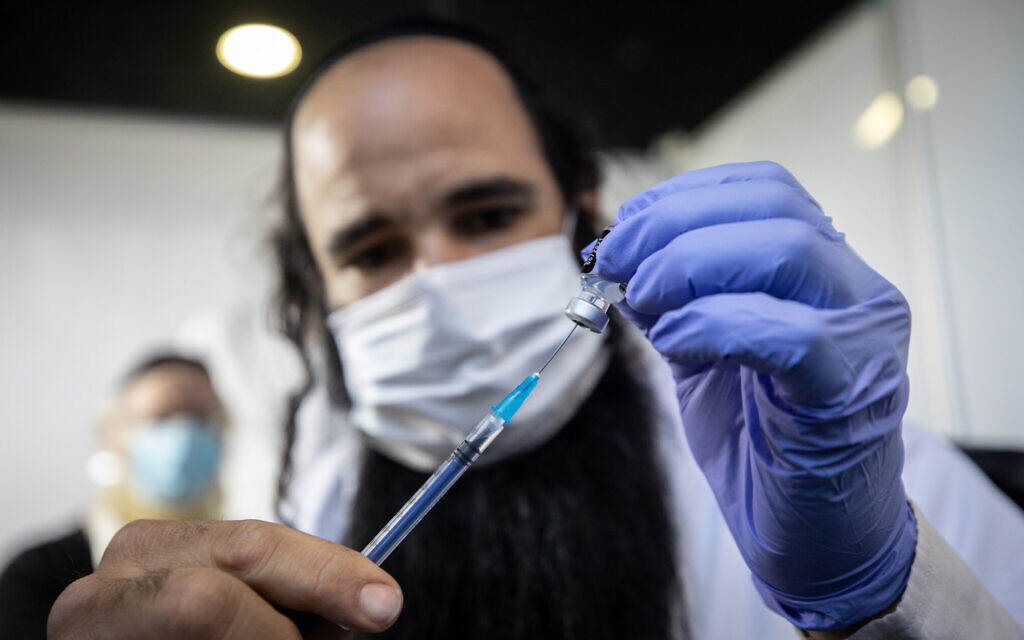One hundred thousand Israelis who received their first COVID-19 vaccine did not return for their second dose, according to a report on Saturday.
Ministry officials cited by Channel 12 news attributed the reluctance to give the second injection to two factors – caution about side effects after the first dose and misinformation about vaccines.
The network said health professionals were among those who received the first dose, but did not return for the second, but in a lower percentage than the general population.
Get the daily edition of The Times of Israel by email and never miss our main news.
According to the latest data from the Ministry of Health, 5,128,212 Israelis received at least one dose of vaccine. The 100,000 people who reportedly did not receive a second dose represent just under 2% of that group.
The number of people who received both shots was 4,128,807.

An Israeli man receives a COVID-19 vaccine at a Clalit vaccination center in Jerusalem on March 11, 2021. (Yonatan Sindel / Flash90)
Citing the rate of vaccination and the continued decline in morbidity, the Ministry of Health announced on Saturday that it will allow more visitors to health and wellness facilities.
A ministry statement said residents of those facilities – which include geriatric hospitals, rehabilitation centers and a hostel for Holocaust survivors – will now be allowed to receive two more visitors. Visitors must be vaccinated, under 16 or have recovered from COVID-19.
Also on Saturday, Hebrew media reports said that of the nearly 1,000 Israelis now hospitalized in coronavirus wards, less than 10% have been fully vaccinated.
None of the patients currently connected to an ECMO machine, which treats severe cases, has been fully vaccinated, according to the reports, which were based on data from the Ministry of Health.
The Ministry of Health said Saturday night that 2,386 new cases of coronavirus were confirmed on Friday and 409 on Saturday, bringing the number of infections in Israel since the pandemic began to 817,680.
The death toll rose to 5,988, with 12 deaths recorded on Friday.

Israelis enjoy the beach in Tel Aviv on March 13, 2021. (Avshalom Sassoni / Flash90)
The number of active cases was 35,593, with 626 people in serious condition, including 214 on ventilators.
Of the 84,286 tests performed on Friday, 2.9% were positive.
Recent morbidity figures represent a dramatic improvement in the past two months, mainly due to the success of the vaccination campaign. The success comes despite the proliferation of more infectious virus variants and the gradual lifting of virus restrictions.
Health officials expressed optimism that Israel is turning the corner with the pandemic, with officials quoted on Thursday by news channel 13 as saying the situation was “the most hopeful since the pandemic began” last year.
The authorities said that if the positive trajectory continues, the Israelis will be able to celebrate Easter without limitations in late March.
